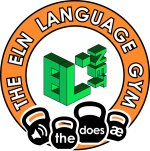An idiom is defined as a word sequence, i.e. a phrase whose meaning cannot easily be worked out from its individual words or, in other words, is not a 100% literal. The degree of transparency of an idiom can range from almost literal, i.e. easily understood, to the totally obscure, i.e. non-literal and impossible to understand until you look it up in a dictionary or someone explains its meaning to you.
Idiomaticity describes the extent to which a learner’s language sounds native-like. What you say may be grammatically correct but not idiomatic, i.e. not natural. Needless to say, learning idioms is as important as learning grammar.
There are many ways of classifying idioms, here are some of the more common types
1. binomials and trinomials
e.g. thick and thin; wait and see; hook, line and sinker
2. euphemisms, i.e. polite words or expressions that are used to refer to things which people may find upsetting or embarrassing to talk about, for instance, sex, the human body, or death
e.g. horizontally challenged, pass away
3. “frozen” similes (traditional comparisons that follow the … as + adjective + as + sth/sb pattern)
e.g. as busy as a bee, as white as a sheet
4. metaphorical compounds
e.g. a lone wolf, a hot potato, the evil eye
5. phrasal verbs
A phrasal verb is a verb usually followed by a preposition. The difference between an ordinary verb followed by a preposition (eg look at a word) and a phrasal verb (eg look up a word) is that the meaning of the former can be easily understood once you know the meaning of the base verb (in our case it is the meaning of the verb look), whereas the meaning of a phrasal verb oftentimes has nothing to do with the meaning of the base verb. If you look at a word, you use your eyes to see the word, if you look up a word, you find what it means by consulting a dictionary.
6. proverbs and catchphrases (also spelt as catch-phrases or catch phrases)
e.g. Get a life! Three strikes and you are out. Size matters.
7. restricted, i.e relatively fixed, collocations
e.g. a feasible solution, blissfully happy, descend into chaos
8. fixed or non-literal “turns of phrase” aka “true” idioms
e.g. a red herring, fly off the handle, since sliced bread
There are some Quizzes on Idioms on EnglishLab.Net (more are on the way, so stay tuned)
Here are a few questions that you will be able to answer once you are done with the quizzes:
- If something is a bargain, is it cheap or expensive?
- What is it like if it is up the creeks?
- What’s her job like if she’s cheesed off with it?
- What’s a bad hair day?
- Why would someone speak with a plum in their mouth?
- How does he feel if he feels blue?
- Who is a sugar daddy?
- Whom would you call a square peg?
Do the quizzes and find out!
